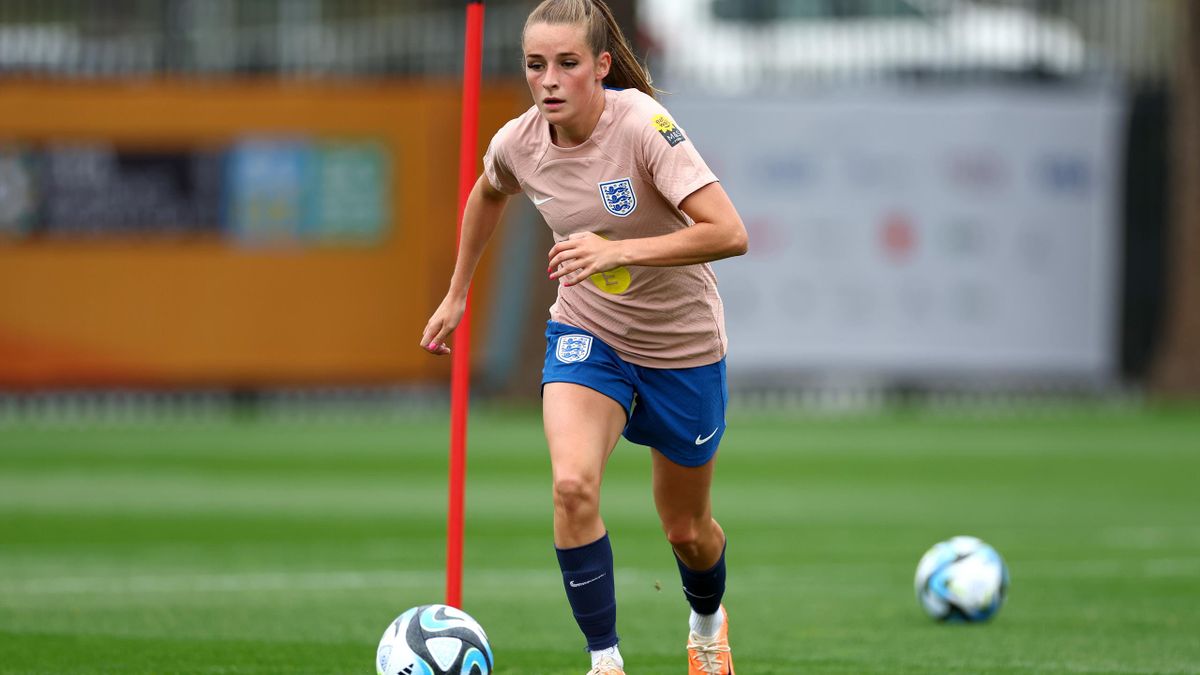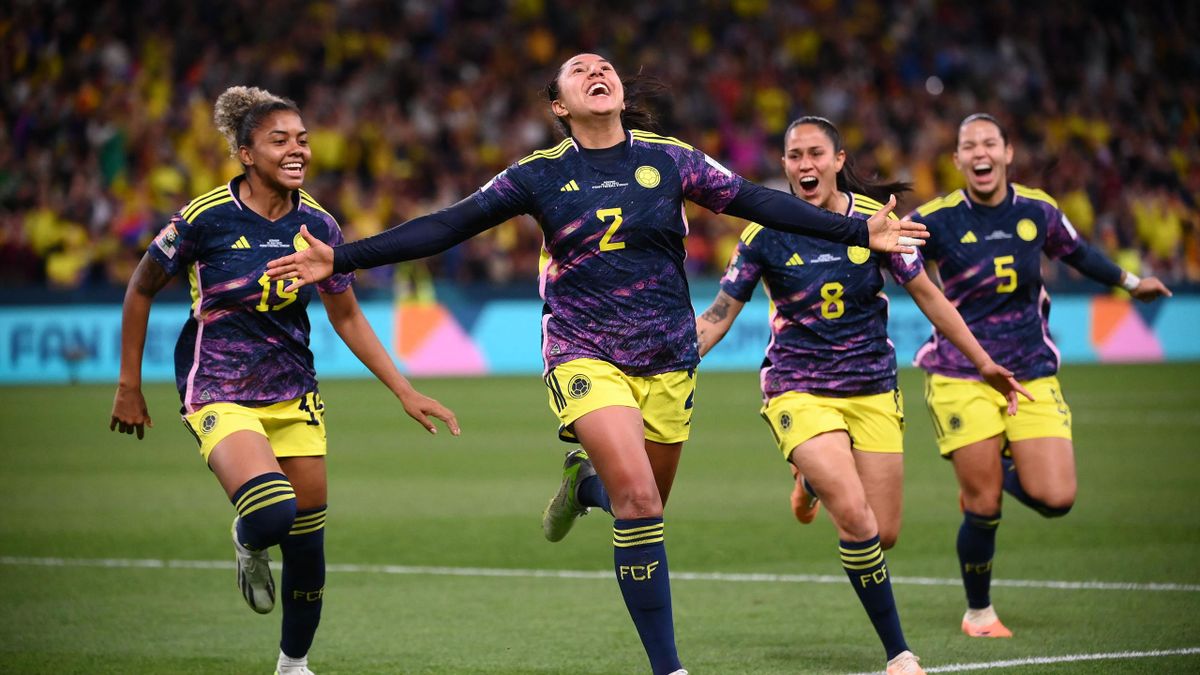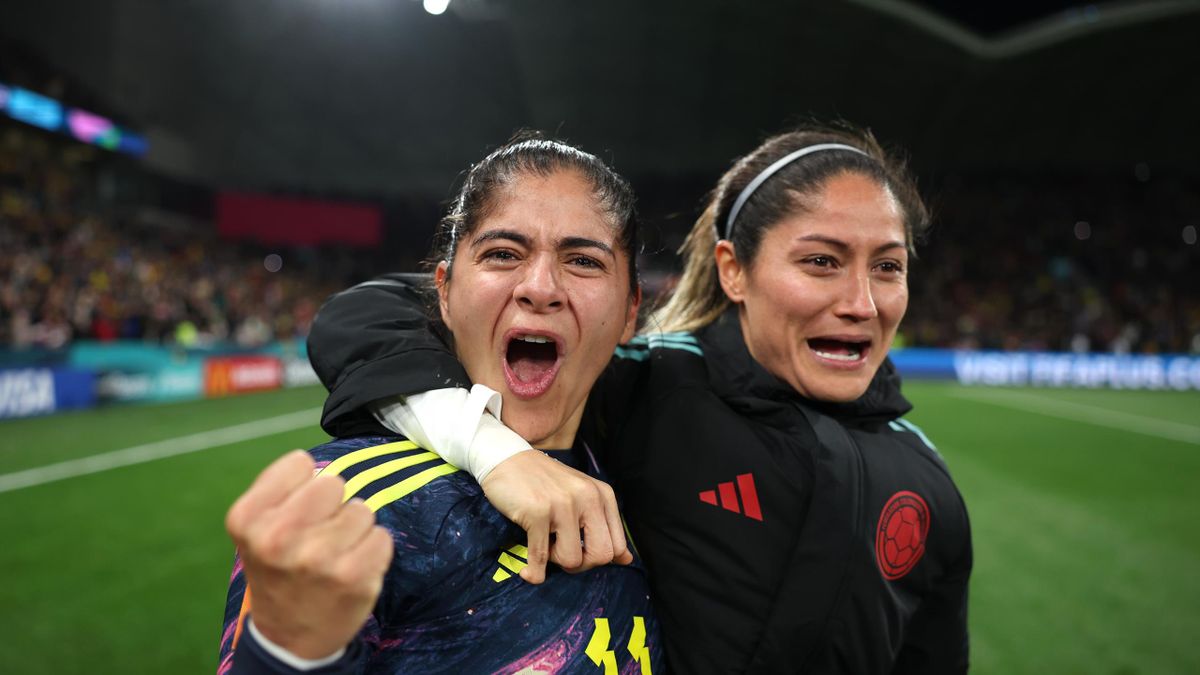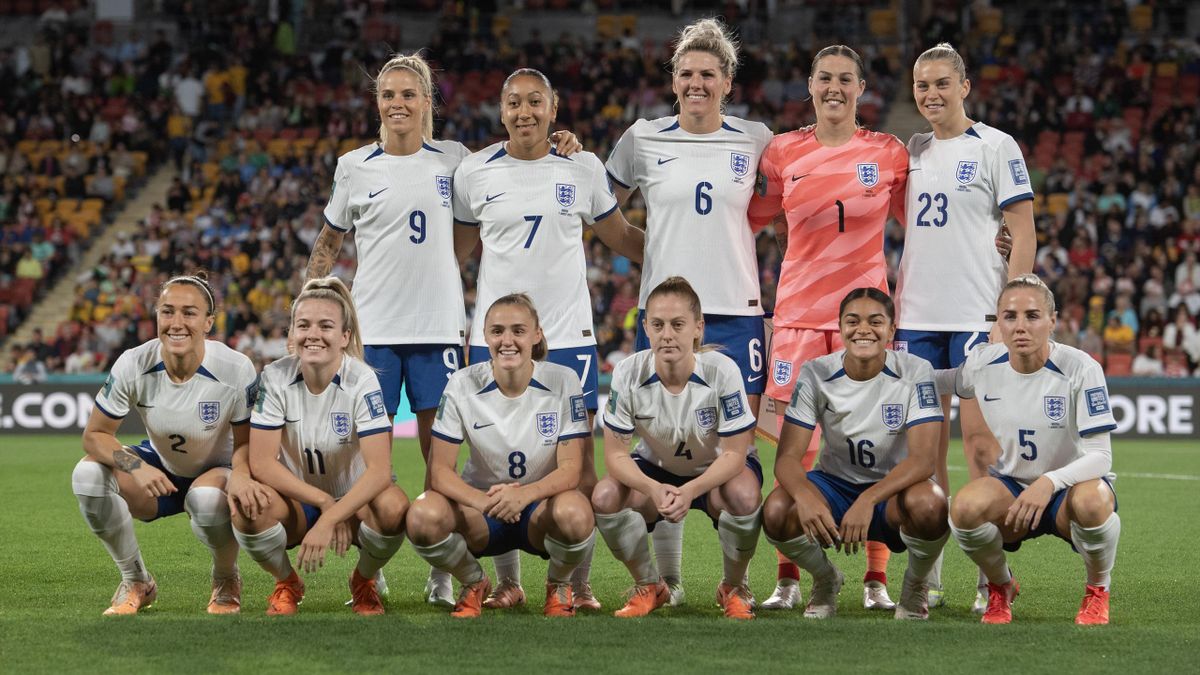England v Colombia: Who replaces Lauren James? Who is the favourite to win Women’s World Cup quarter-final?
England’s Women’s World Cup journey continues with a match-up against Colombia in the quarter-finals.
The Lionessess are unbeaten at the tournament so far, but the South American side will possibly be the toughest test yet, one England can’t fail if they want to keep their World Cup dreams alive.
With this World Cup seemingly becoming synonymous with upsets, Sarina Wiegman’s side can’t get complacent when they take on Colombia at 11:30 UK time on Saturday at Stadium Australia in Sydney.
Here are the burning questions we need to answer ahead of the clash…
How do England set-up without James?
James will for sure miss the Colombia match due to suspension. There is a likelihood that she misses more, with Nigeria’s Deborah Abiodun having her ban upped to three matches after she was sent off against Canada for her tackle on Ashley Lawrence in the group stages. If FIFA implements the same ban on James, her World Cup is over.
Wiegman defends James after red card but says it’s a ‘huge lesson’
Wiegman will now have to find the best way to replace James’ output against Colombia. The Chelsea forward has been, by far and away, England’s best player at the tournament.
So what could Wiegman do?
Like-for-like replacement
Wiegman could simply replace James with Ella Toone in the starting XI. The Man United midfielder can occupy the same pockets that James does, and while she isn’t as creative as James, she is someone who can pick up the ball, lay it off quickly, and make runs into the box.

Ella Toone pictured during an England training session in Australia. Toone didn’t make an appearance against Nigeria but may be crucial in the absence of Lauren James.
Image credit: Getty Images
High risk, high reward?
Another option is for England to go all out on attack in a 4-2-3-1 or a 4-2-2-2 set-up. Instead of trying to replace James’ output with one player, this system would simply bring in more attacking players to overload the Colombian defence.
This system would require incredible defensive diligence, though, or it risks being unbalanced. The full-backs would need to be a bit more reserved in their forward play, and Georgia Stanway, who would play in the midfield two, would need to shift her focus to being a bit more conservative despite her abilities as a box-to-box midfielder. Up front, Wiegman could choose four of Toone, Lauren Hemp, Chloe Kelly, Russo and Rachel Daly.
The danger with this option is that it isn’t one we’ve seen from Wiegman with this side, and it’d be a huge risk to try it out in a knockout match at the World Cup.
Back to tried and trusted
A third option for Wiegman would be the system that won the Lionesses the Euros last summer. The 4-3-3, which has been England’s main set-up during Wiegman’s reign, was used in the opening two matches at this World Cup against Haiti and Denmark before the system was switched to bring in some more creativity and to accommodate James.
The problem is that it means Daly either is dropped, plays at left-back in a back four – meaning she has less freedom to go forward than in a back three – or as a winger, which seems to be a waste for someone who has such an eye for goal.
Unless Wiegman plays her up top and makes the bold choice to drop Alessia Russo. Decisions, decisions…
Whatever Wiegman does, she’ll certainly take a lot from the match against Nigeria, which was tough for the Lionesses. It was a struggle to break down the Super Falcons’ defence, and without James, that’ll be even more difficult.
But there were positives from that match too. The narrative that England were lucky to go through may have a leg to stand on, but however sub-par the performance might have been, they outperformed Nigeria in terms of adjusting to the game’s changing dynamics, like James’ red card. They excelled in keeping their tight defensive shape when under it and most importantly, held their nerves during the shootout, a paramount skill of knockout football that may come into play again versus Colombia.
Yet another new test for the Lionesses: Colombia’s threat
England have faced very different types of teams in this tournament, and they come up against another style of play in Las Cafeteras. Managed by Nelson Abadia since 2017, Colombia topped their group after a stunning 2-1 win against Germany, with a super-goal from Linda Caicedo and a 97th-minute winner from Manuela Vanegas. Their victory against Jamaica marks their first quarter-finals appearance at the World Cup.

‘We are here to make history’ – Colombia players react after stunning Germany win
But Colombia are certainly physical. And that, combined with their skill set, is a type of team that England have yet to face.
Colombia’s win against Jamaica was very stop-start, and in a way, this plays into their hand. Abadia’s side want to unsettle their opponents, dragging them out of position, and playing so quickly in a way that makes the opposition have to foul them.
This Colombian side is also incredibly patient, and tactically flexible. Against Jamaica, Abadia’s initial plan of playing through the middle wasn’t working. They were coming up against a side that had yet to concede a single goal in the tournament at this point. At half-time, when it was still 0-0, Abadia didn’t make any personnel changes, but he clearly instructed his team to use the flanks more. With Jamaica being such a narrow side, it was obvious that Colombia’s way through was through the flanks.
The deadlock was broken in the 51st minute when Ana Guzman’s excellent switch of play from left to right found Catalina Usme, whose fantastic first touch controlled the ball before her curling shot fired her team ahead.

‘Lucky enough, I kept a cool head’ – Usme on scoring goal that saw Colombia make history
Which brings us to Colombia’s forward line. England have been relatively lucky in terms of the teams they’ve faced not having much attacking threat. Denmark, whose tournament ended in disappointment, couldn’t muster much going forward, and Nigeria’s Asisat Oshoala, who came off the bench, wasn’t fully fit.
Las Cafeteras have game-changers up front, ones that will likely test England’s back line the most in this tournament.
Caicedo is an 18-year-old wonderkid, whose feet move so fast it’s hard to predict what she’ll do next. Her goal against Germany will certainly be a goal of the tournament contender and she has an eye for a good pass too.
Maya Ramirez and Usme are not just goalscorers but workhorses who can press and will relentlessly tire out their opposition.
Abadia is known for not mixing things up too much (in fact, similar to Wiegman, he sometimes garners criticism for not using his bench enough), and he’ll certainly hope that his forward line continue to have that killer instinct which they’ve shown throughout the tournament.
Who goes into the tie as the favourite?
The European champions certainly have the edge over Colombia heading into this tie. Under Wiegman, the side have only lost once in 36 matches, a 2-0 defeat to Australia in a friendly right before the World Cup.
England’s talent pool has also never been higher. Several players are considered among the world’s best in their respective positions. Mary Earps is the current FIFA Best Goalkeeper. Millie Bright is part of a Chelsea side that kept 11 clean sheets on their way to the Women’s Super League title. Keira Walsh and Lucy Bronze play for Champions League winners Barcelona, with the former signing last summer for a world record fee in the women’s game. Daly won the WSL Golden Boot with Aston Villa this season, and Russo just made a huge move to Arsenal, ending her three-year stint at Manchester United.

England team ahead of the 2023 FIFA Women’s World Cup Round of 16 match against Nigeria at Brisbane Stadium.
Image credit: Getty Images
Much has been made about the injuries to this England side, with captain Leah Williamson, Mead and Kirby all injured, but this is still a very strong team – one that blends experience with youth players, and have shown that the positive culture around the camp, combined with the tactics from Wiegman, brings great results.
They’re just not favourites for this tie against Colombia, but the Lionesses are still one of the favourites to bring home the trophy. There has never been an England side more prepared to do so.
What about the other quarter-finals?
Spain v Netherlands (Friday 11 August, 02:00 UK time)
Two European giants are set to collide. Spain enter this contest on the heels of a commanding 5-1 victory over Switzerland, while the Netherlands faced a tougher battle, securing a 2-0 win against South Africa in the round of 16.
The Dutch team carries with them a sense of unfinished business following their loss in the 2019 final. The Netherlands boast a sturdy defensive line-up, yet they will have to navigate the absence of Danielle van de Donk, who misses out due to accumulated yellow cards.
Spain have displayed their ability to execute remarkable team goals, but they have also shown a tendency to retain possession without actually creating chances against stronger opponents.
Japan v Sweden (Friday 11 August, 08:30 UK time)
Two standout teams from the group stages are set to clash, with Group C winners Japan squaring off against Group G leaders Sweden. Japan enter the match following a convincing 3-1 win against Norway, while Sweden beat two-time defending champions USA in a penalty shootout.
Despite the US having had ample opportunities to secure a win in regular time against Sweden, goalkeeper Zecira Musovic’s series of outstanding saves ensured her team’s continued contention in the match.
Japan have shown that they are extremely clinical, and they have effectively rotated their players and forged a style of play that has harmoniously clicked in this tournament. If they have one weakness, it’s set-pieces due to their height, and funnily enough, Sweden’s scoring prowess has predominantly emerged from… set-pieces.
Australia v France (Saturday 12 August, 08:00 UK time)
Co-hosts Australia secured a spot in the quarter-finals for the fourth occasion in the last five World Cups, while France are making their fourth consecutive last-eight appearance in the tournament.
Both teams have demonstrated remarkable resilience and possess the ability to match each other goal for goal. Australia are expected to benefit from a more prominent role from the returning Sam Kerr. France have also shown they have an eye for goal under Herve Renard.
As a result, this match has the potential to become one of the higher-scoring contests of the tournament.
Read the full article Here


